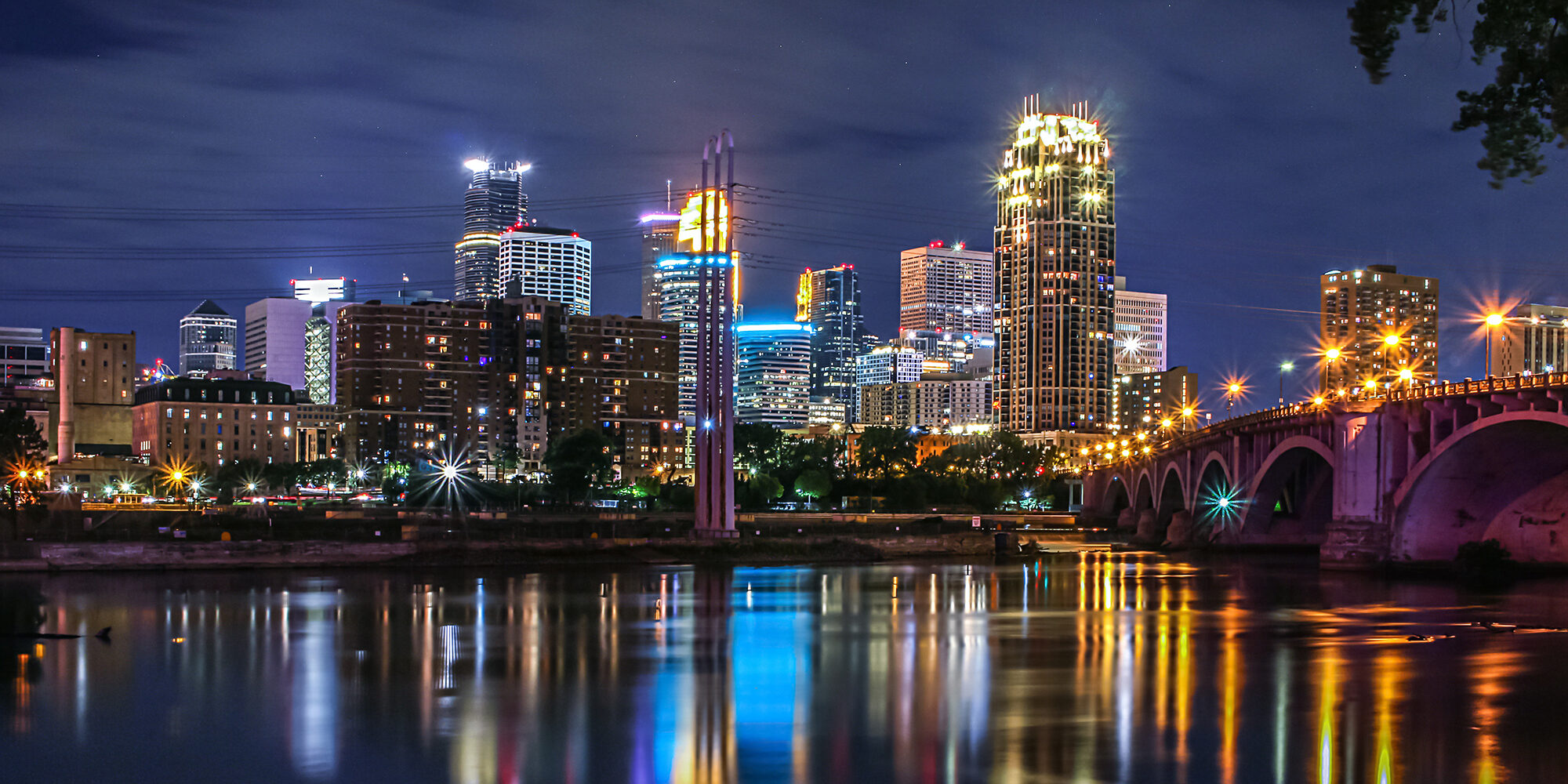
Minneapolis Beauty Entrepreneurs On Running A Business During A Year Of Police Brutality, Social Uprising And Resilience
It’s been a heavy year for Minneapolis.
George Floyd’s death in the Powderhorn Park neighborhood of the city on May 25 last year sparked outrage and worldwide protests as people demanded justice for his killing and systemic change to end police brutality. Almost a year later and about 10 miles from the courthouse where Derek Chauvin, the former Minneapolis police officer now convicted of murdering Floyd, was being tried, another Minneapolis police officer fatally shot 20-year-old Daunte Wright.
Against the backdrop of continued police violence, social unrest, Chauvin’s verdict and the pandemic, we talked to four Black beauty entrepreneurs about how this past year has been for them on an emotional and mental level, and what it’s been like running a business amid the turbulence in the city where they work and live. Read what they have to say in their own words ahead.
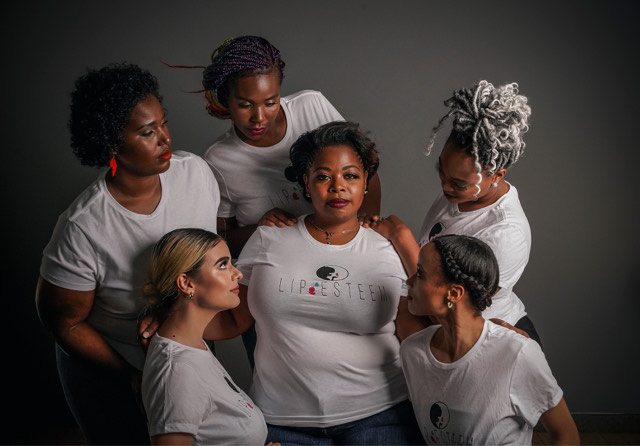
Tameka Jones, Founder of Lip Esteem
“I launched Lip Esteem, my plant-based, gluten-free, cruelty-free lipstick brand on July 14, 2020 right in the midst of COVID-19 and the George Floyd murder. I was furloughed from my job as a makeup artist, and I wasn’t secure in what was going to happen next in the world. I guess it was a little bit of anxiety and fear that made me start thinking about a plan B. And so my plan B happened to be maybe right now is a good time to start my brand. I bought all of the waxes and colors and molds, which didn’t work out too well for me. My formulas weren’t right and every lipstick came out different. I went into plan B again and ended up finding an awesome plant-based manufacturer that makes beautiful lipsticks and our collaboration started.
Another reason why I started Lip Esteem was that I did not want to go back into any more corporate spaces where I was the only woman of color and where I was misunderstood or my people were misunderstood or talked about in a negative way. I couldn’t see myself doing that. I said, ‘I have got to get out of here and never turn back.’ And entrepreneurship was the way for me to do that.
Emotionally, I feel like this past year has felt like we’re in a bad dream, and we can never wake up. Even when we get close to normalcy, as far as our emotions or dealing with the trauma of the previous murders of people of color, then here comes something else. You can never fully heal, and you can never feel like yourself again. It’s a constant state of fear for Black, African American, people of color, and social media doesn’t help that fear. It actually puts lighter fluid on it because you see how many people don’t have empathy for Black people and their responses to the murders, to the trial, feels so inhumane that you can’t believe that these people are like your neighbors. It’s just constant trauma.
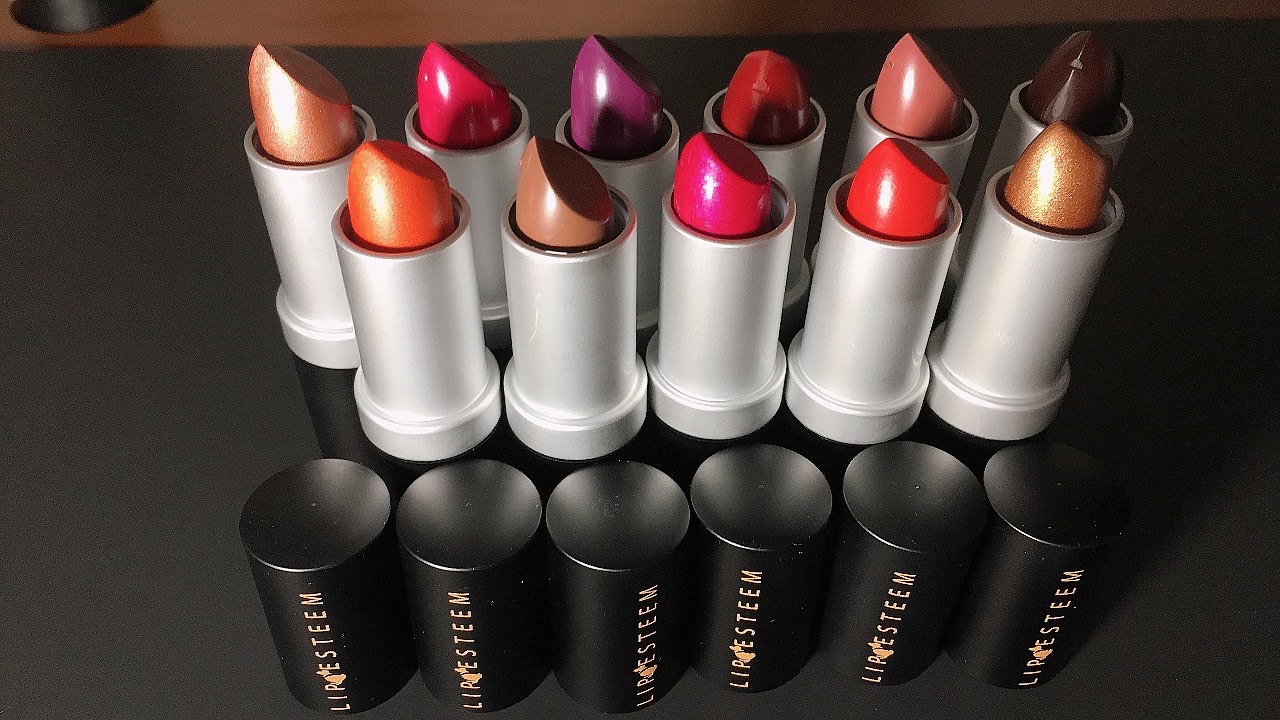
Lip Esteem is primarily a brand that helps people to feel good and, so, I get my joy from going out and being a vendor at events where people are and spreading love. That fills me. I’m not only able to find people the right shade of lipstick or right formula, but I’m also able to have conversations with women who do support the causes of Black people. I would say most people that purchase Lip Esteem are allies. For me, it’s so helpful and encouraging to see that white women and non-African American women are now standing up. They’re not being quiet anymore. And they’re able to voice the truth about the things that are going on. They’re not being quiet anymore. They’re saying, no, you’re wrong, and you shouldn’t think like that. I think seeing George Floyd die right in front of our eyes took the scale off of everyone’s eyes.
Right now, because corporations and larger companies are seeing the truth about what Black people have been talking about as far as the inequalities in pay and opportunity, doors are opening for Black businesses. If it’s possible, it’s a perfect time to launch because there are a lot of people that are willing to help take you to the next level. As far as Lip Esteem goes, I am currently on a Hulu television series that’s being filmed called ‘The Small Business Revolution.’ That’s an opportunity for growth and for me to scale up when I didn’t know how to, I didn’t know what the next steps were.
Minnesota has a large, successful African American community. Minnesota civil rights leaders are doing an exceptional job in ensuring that laws are changed and processes are also changed. We continue to fight. The images of rioters and looters, I would say those are not Minnesotans because Minnesotans love their small businesses. They love their cities. And I feel like those are infiltrators, and they’re not what Minnesota represents. For the majority of Black Minnesotans, we are constantly smiling through racial tension,. We are constantly trying to figure out ways where we can gather so we can talk and figure out what our next steps are. It’s a beautiful, thriving community with smart, educated people who love and want to protect our cities.
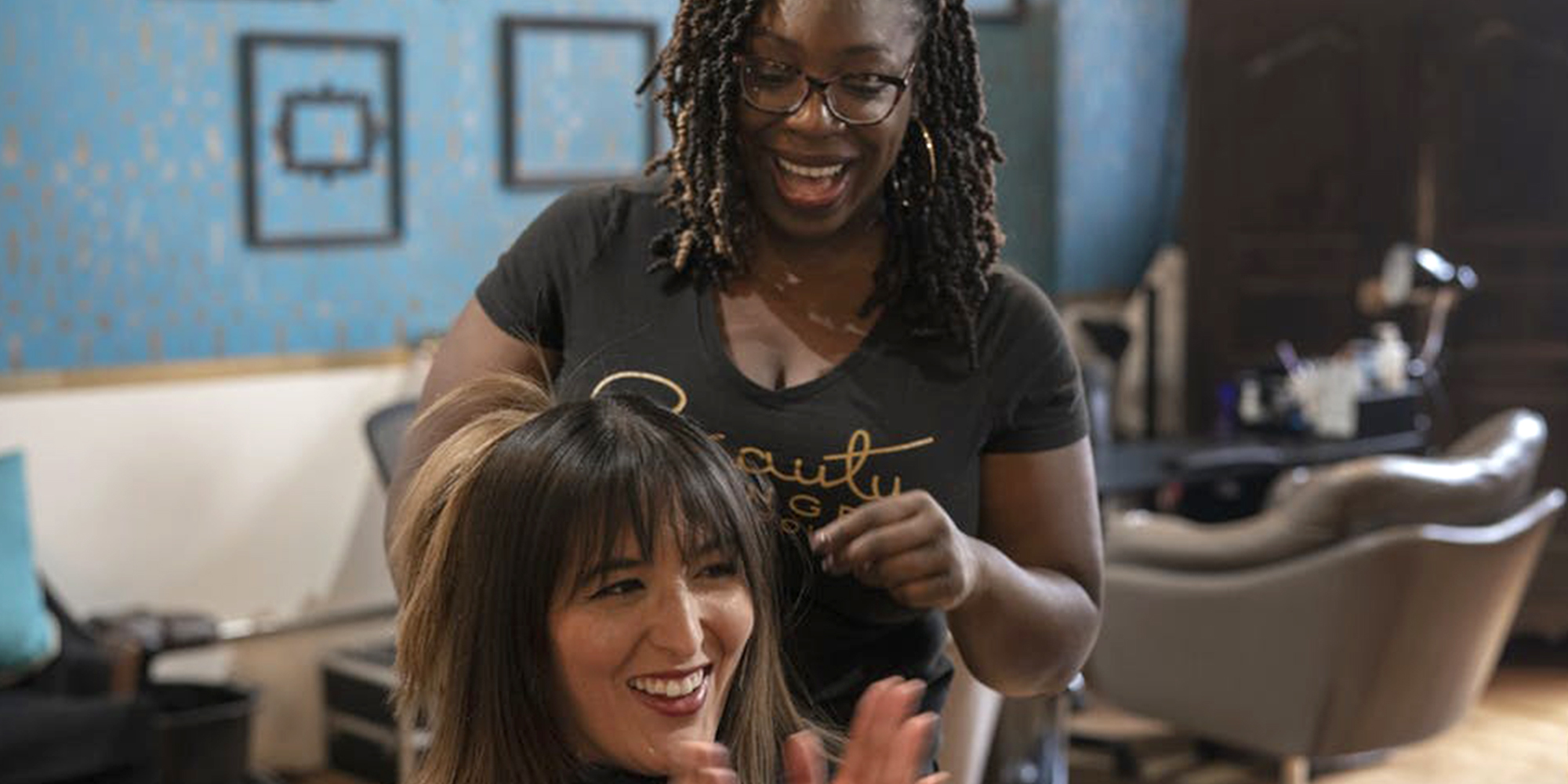
Melissa Taylor, Owner of Minneapolis Beauty Lounge
“The Beauty Lounge initially opened in 2011. I went to school, got a four-year degree, started working for a Fortune 500 company and, shortly thereafter, I realized this isn’t what I want to do with my life. I’ve always done hair for friends and family growing up and through college, so I went to cosmetology school and, eventually, started working at a salon. I kind of fell into salon ownership. The lady of the salon I was working in didn’t want to have a space anymore, so I ended up taking over her lease. I didn’t go in the traditional route, I didn’t have a business plan. I knew I always wanted to have a salon, but I didn’t anticipate it being that soon.
When George Floyd got killed, it was right before we were getting ready to reopen after shutting down for COVID, and I actually delayed our reopening for another week because I really wanted people to have time to process. It really shook up the community in a way that I’ve never seen before, and it just didn’t feel the same. I didn’t feel right shoving business or commerce down peoples throats. People have a lot going on, a lot to deal with, a lot of emotions, and it’s been hard.
What we started to see right after George Floyd was killed was this big surge in supporting Black-owned businesses, which was a double-edged sword. It was nice because we had people who were our target market who didn’t know we existed finding out about us, but, at the same time, we had other people who would come in once and say, ‘Oh, I did a thing, I supported a Black-owned business,’ but that’s not really how the hair business works. Coming into the salon one time doesn’t make you a client. We had to temper our excitement from the exposure with the actual reality of who’s coming in to see us in the salon.
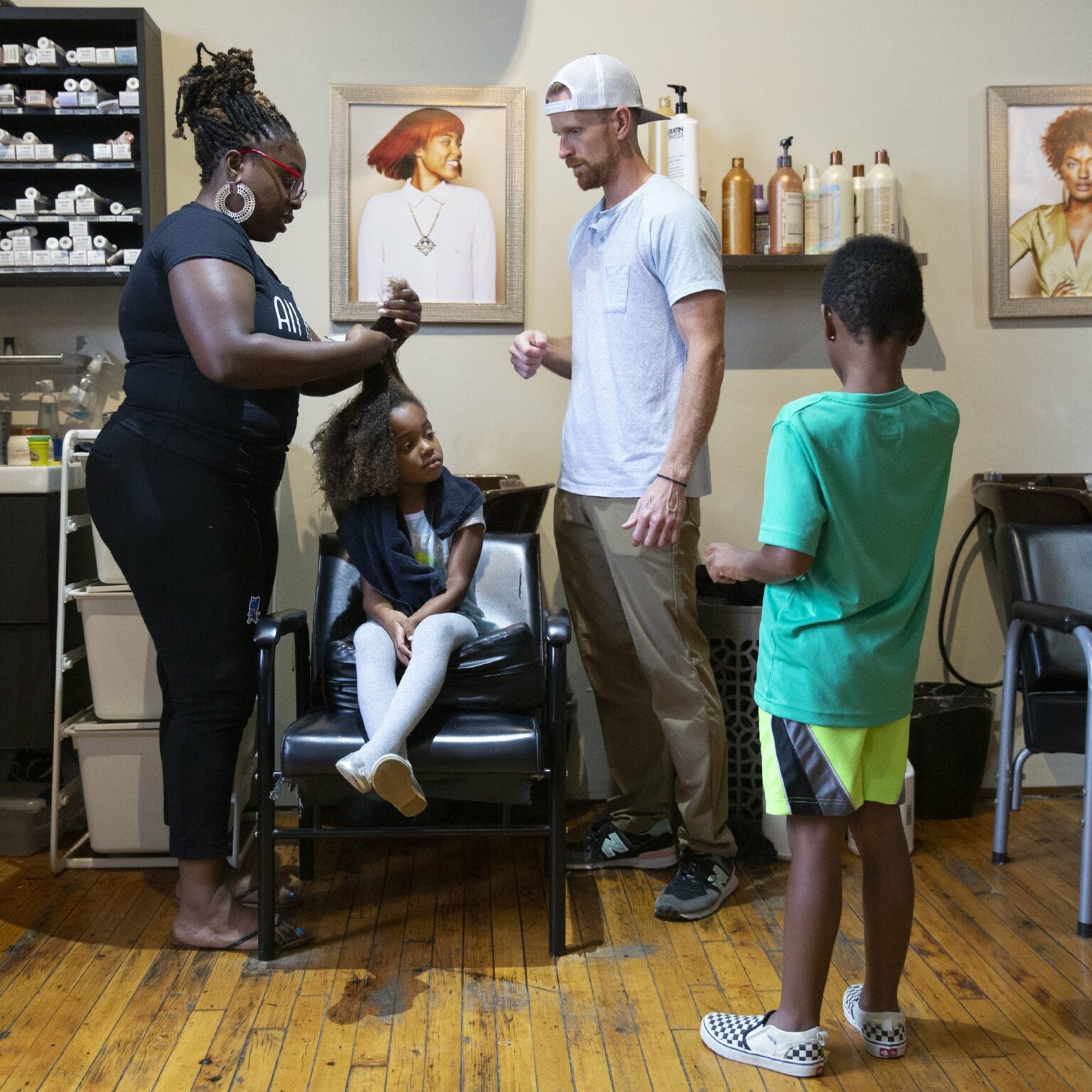
Daunte Wright’s death was really hard for me, and I think it’s because we were dealing with all of the emotions from the trial itself and, then, you had that happen right before the end. It almost had a feeling of hopelessness. People were fighting so hard after George Floyd got killed, their emotions were so high and, then, this still happened. It was really hard for me personally, and I let myself feel the emotion. If there are days I need to step away, I do. I think I’m still processing to be completely honest with you. It’s just really hard, and it’s hard as a business owner because you know that people in your community are feeling the same thing. It’s hard as a parent because you have to explain things to your kid. I don’t know that I’ve found great coping mechanisms. I think I’m just taking it one day at a time.
Someone asked me recently, ‘What would you want your grandchildren to know?’ And I really want them to grow up in a world where there isn’t racism. Do I think that’s going to happen? Probably not because I think it’s going to take generations to correct. It’s been 400 years, and we’re still here and struggling, so I do think it’s definitely going to take some time, but I do want people to understand that there’s justice, and for people to start seeing humanity in people of all races and all backgrounds. There’s a process that is designed in our country and, if it worked as designed, we wouldn’t have these issues. But, unfortunately, the process has been rooted in racism, so I really hope the process begins to work the way it was intended to work, and that we reevaluate our systems to make sure that institutionalized racism is eliminated, and we can actually see people for who they are.
I think the salon presents a very unique perspective, especially one that is multicultural. There are very few places where you can actually sit with a cross section of people for a prolonged period of time. I think there’s a lot of value and a lot of beauty in having a space that is diverse and where people can talk, and they can share their truth and they can vent and, then, other people can listen. I don’t think that you have to be an active participant in the conversation to get something out of it, and I think that’s what we’ve seen a lot in the salon is that people can learn and grow by just being present. There’s something about sitting in that chair where people let their guard down, and they’re not as filtered as they normally are. It’s a very interesting space to be in, especially during times such as this.
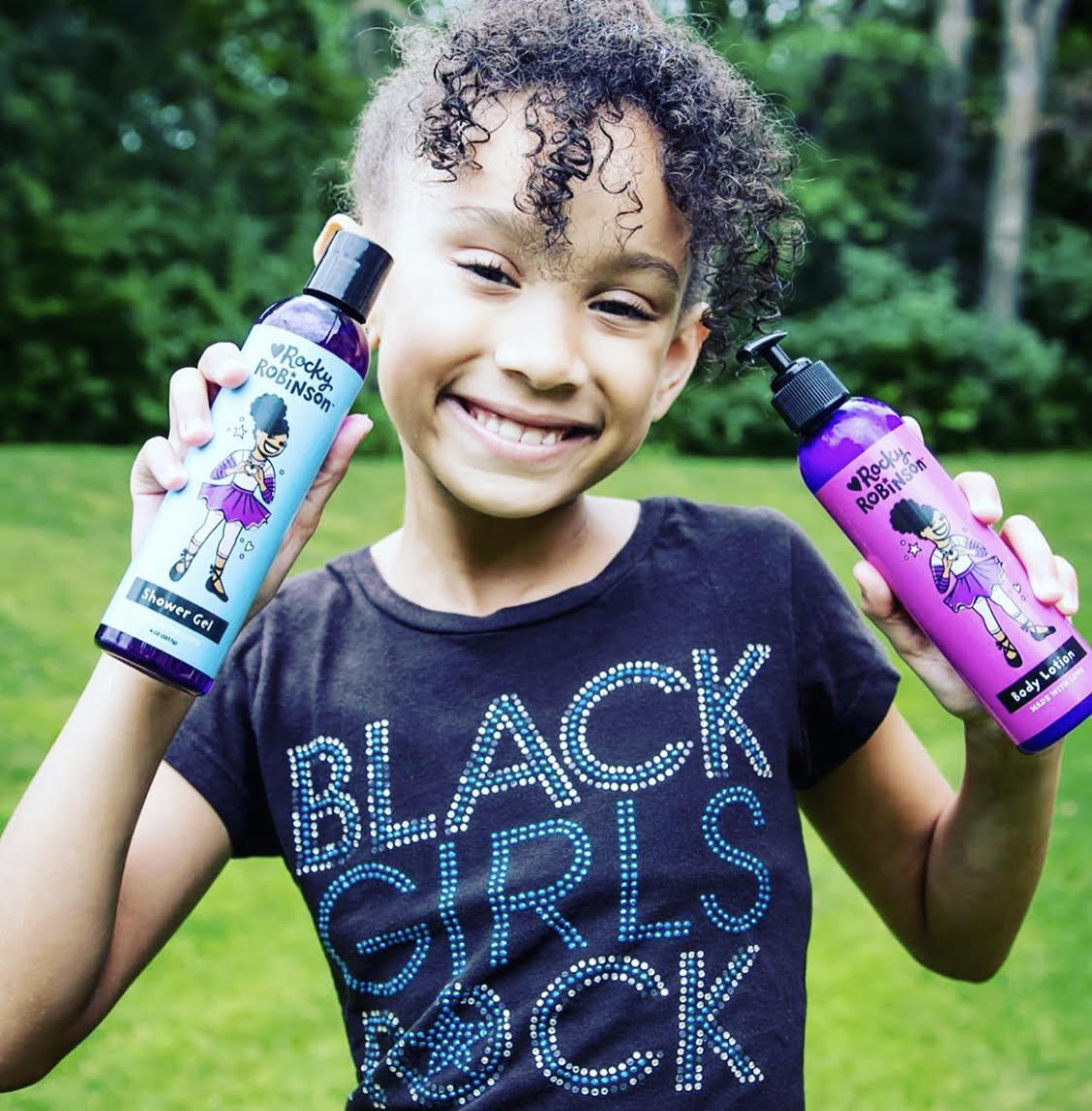
Audra Robinson, Owner of Rocky Robinson
“I went live with my brand Rocky Robinson on Instagram in March 2020. It was a crazy time to launch a business because, within the next week, the pandemic hit and, then, the murder of George Floyd here in Minneapolis was the end of May. It really started going not just locally here, but, then, nationally and internationally in June. Along with that came a lot of conversations that needed to happen for a very long time around the economic inequities in the United States when it comes to jobs, education, housing, business ownership and funding. And, then, Juneteenth happened, so there was a lot of movement around supporting Black-owned businesses, and Rocky definitely benefited from that conversation, that awareness and that push. I haven’t received a lot of funding, but I’ve received grants from Hennepin County in Minneapolis and BWWA (Black Women’s Wealth Alliance).
Target created a pro-bono program that Rocky was accepted into. It helps with communication strategy, PR messaging and consumer insights. The Nielsen Pro-Bono BASES program also selected Rocky Robinson out of hundreds of applicants and a dedicated team of 18 employees will be conducting new product concept testing, market and category research and focus groups to determine the potential viability of the brand.
What also came out of what I call the two pandemics—COVID-19 and racism—is that the corporations started to admit that they’d been getting it wrong. There was definitely a lot of change in messaging, including Target, which is based here in Minneapolis. They were one of the earlier companies to say, ‘We know there’s a problem.’ I worked for Target in corporate for about seven years. It’s actually where I got inspired to start Rocky. At the same time, Target is one of the companies that has been called out for not signing on to the 15% challenge. Being headquartered here in Minneapolis, I personally know that they made a lot of efforts towards creating clear messaging, even within store and online about Black-owned, Black-founded brands—and yet there’s still a ways to go there.
I think it’s going to be up to all of us to keep the corporations honest and make sure that they are remaining committed to the promises that they’ve made, the goals that they’ve set and making sure that it’s sustainable, long-term, intentional change. It’s going to definitely be up to the people where we spend our dollars, if our interests aren’t being met, particularly African Americans. We make up 15% of the population, we over-index in many categories, especially beauty.
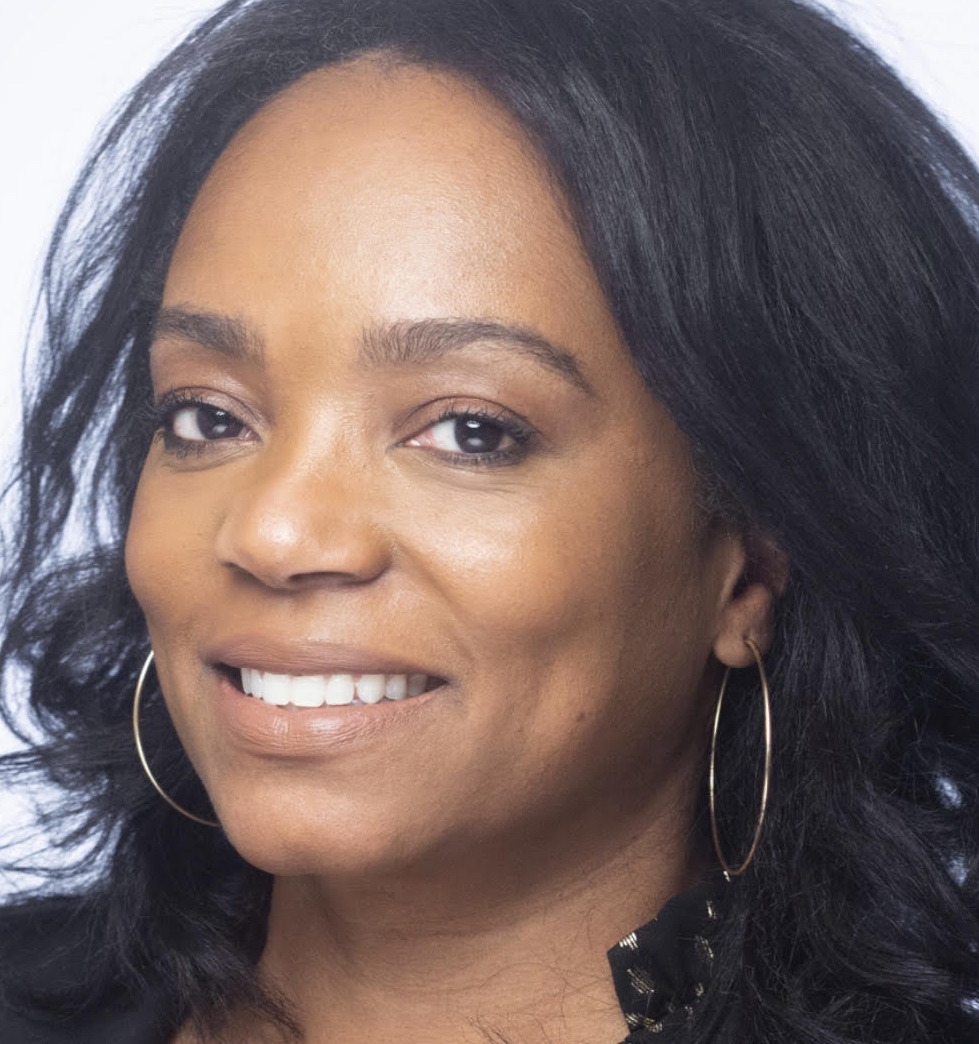
Being from Minnesota, it was really difficult for me because of everything that happened and this perspective of what Minnesota is. Even with the verdict, there was so much about it that says a lot about Minnesota as well. What happened here with that verdict was unprecedented, and it took the boots on the ground, the protestors, the social activists who were unrelenting. Even the video [of George Floyd], that was a 19-year-old Black girl who captured that video. And it was a Black woman activist, her name is Nekima Levy Armstrong, who made sure that video got in the hands of the police chief because, at that point, the police report just said that it was a medical incident. I have a sense of pride in Minnesota and a sense of hope that we can be a model city of the change that can happen.
For me, it goes back to the importance when it comes to my business and how I can continue to let Black girls know that they matter, that representation is important. Despite these things that happen, you can still be anything you want to be. I’m currently working on a Black girls heal event to bring girls into a space where they can experience joy. My brother actually asked me last year, ‘Why does the little girl on your products have a smile on her face? Why is your brand taking that tone?’ And I said because it’s about showing the vastness of the life of Black girls. We do have a right to have joy and to exude that love and peace that I embedded in my brand when I was creating her.
It’s about helping girls find those moments to celebrate life. This is a brand that was created to center Black girls and to encourage them. I do consider it also an inclusive brand because she is for every girl, the products are for every girl, she’s just unapologetically a Black girl. I was intentional about creating her with a deep skin tone and textured hair. Honestly, I think there’s a lot about Rocky that’s like my own personal protest. Black girls deserve to be centered in the beauty conversation, and here she is.”
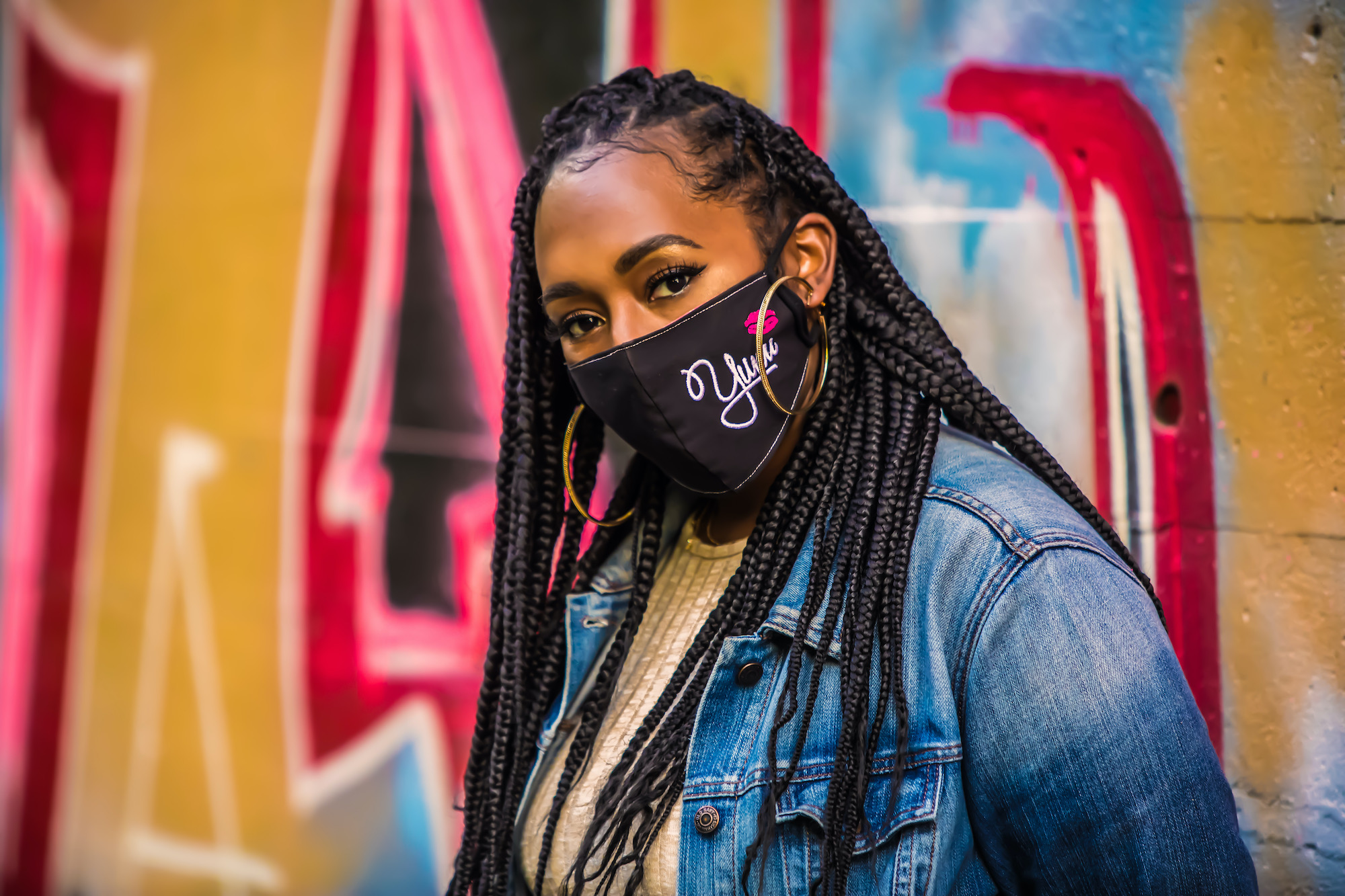
Ronisha Davis, Founder of Yumi Cosmetics
I launched Yumi Cosmetics in the summer of 2016. It stemmed from me being insecure for many years, and battling with weight loss and just not being confident in myself. My business is also dedicated to my mom who I lost in 2018. She had gastric bypass surgery, and I felt like she didn’t have the confidence in herself to lose the weight on her own. I’ve had different collections—the lyf saver collection, the cake collection, a lipgloss collection geared toward younger girls. They’re trendy and fun, and my slogan is, ‘looks good, smells good, and tastes good.’ I sell my products online and, in 2018, I got in contact with someone from Target, who invited me to participate in their Black History Month fair in 2019. I was also traveling to different states for trade shows at the time, so I was doing really good. Then, COVID happened, and everything stopped. I did start making my own custom masks and T-shirts, but things were downhill for months.
The actual place that George Floyd got killed was my neighborhood corner store. I grew up walking there as a little girl with my friends and cousins. The day after he died, it was raining really bad, and there were so many angry people gathered there. I actually have a video from that moment. It was just like, ‘Wow, this is about to be life-changing.’ It’s something I’ve never seen.
Most companies shut down for COVID, and people had time to go to the streets to protest, and get their voice out there and be heard about how they felt about everything. And I was super active, very passionate about it during the time. I was very hurt by it. George Floyd was actually my uncle’s friend and, so, to know how he was affected during that time—and the world in general, how that devastated the nation—it was like a race war going on.
It was very depressing for a while. It still is depressing to this day. Even a year after, the city is not the same, everything’s boarded up. We’re still on restrictions. Other cities are opening up, and people can go and do average stuff and go shopping and sightsee and do different things. But it’s not like that here. I feel like we’re starting from scratch in our city. There’s nothing to really see here, but a lot of boarded up graffiti sites basically. You may not even think that these businesses are open because they’ve kept everything boarded up because they’re afraid that something’s gonna happen.
During the Derek Chauvin case, it was so tense here. People were ready to do anything if they didn’t get what they wanted to hear. We were very pleased to get the verdict we got. It was a relief to finally have justice of some sort, but then I feel like, in general, it hasn’t necessarily helped the community at all. It’s still like, ‘OK, this is a start, but it didn’t heal anything.’ We’re still at the same place. There are still people walking on eggshells.
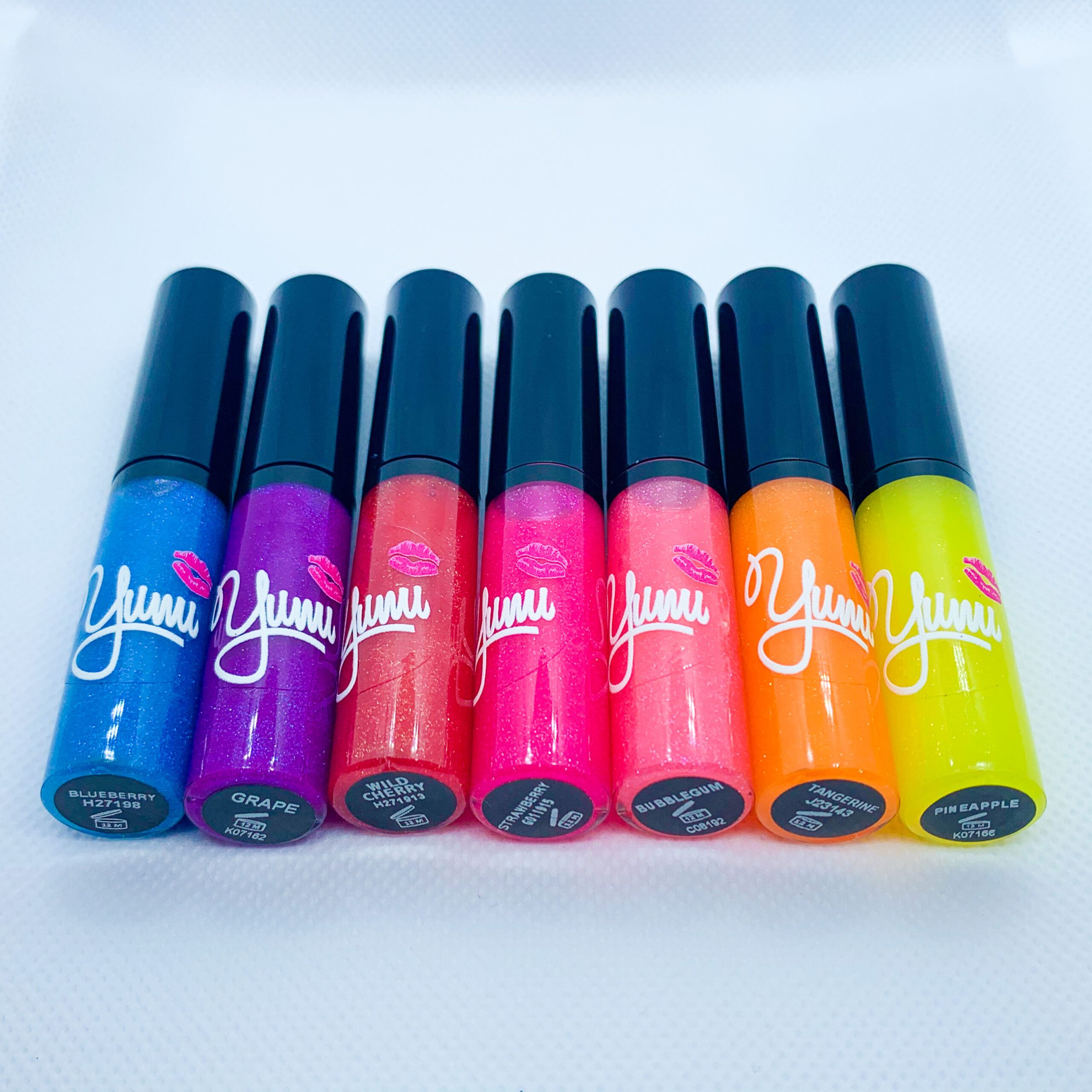
With my business, it’s been really hard for me to do anything. It’s hard to push it because you’re in the midst of what’s happening. 2020 was kind of a roller coaster. I started off doing really well and, then, seeing what my community was going through took a toll on me, which affects me in being able to get up everyday and promote something that I feel like people are going to pay attention to. What’s more important: Is it life or is it pushing some lip products? I just felt like I should be out there with my people and protesting and supporting the cause of what’s happening around us.
Right now, I’m working with different people in the community to see about getting placement in small shops here and there. I have some placement at The Mall of America. I tried to get aid and grants, and haven’t been successful with any of that stuff. It’s really, really hard for entrepreneurs here in general. But, even though I’ve struggled, I wouldn’t change anything. I love what my products do for women that I meet.
I feel like Minnesota has had a bad rep because of the police killings. People are scared to come here or they feel like there’s nothing here or that Black people are treated bad, and that’s not the case. Minnesota is a family state. You can build a family here, you can be very successful. I feel like it’s a mini Big Apple to New York, at least it was before everything went crazy. There are so many opportunities here. People love Prince, well, Prince is from Minnesota. He loved his state. So, you have to come here to see why he loved it.
You also have to be here to understand it, to know where we’re at mentally. You can’t stop us for long. We can make good out of any situation, even if it’s bad. We come together. When all that stuff happened, our community got together and cleaned up each part of the neighborhood. There were meetings, and there were group chats. So many good things come from this place, and we’re birthing something new from all the heartache that we’ve been through.
[Editor’s Note: This story was originally published on May 4, 2021.]





Leave a Reply
You must be logged in to post a comment.